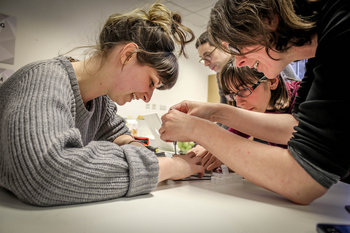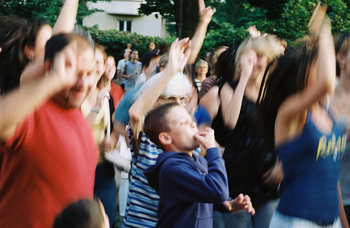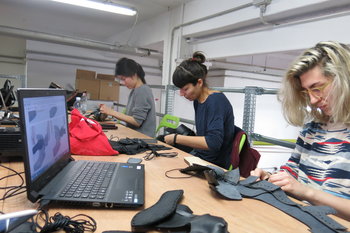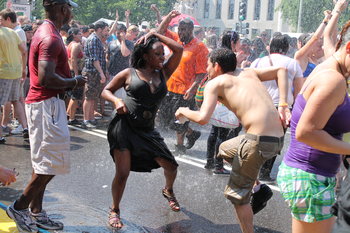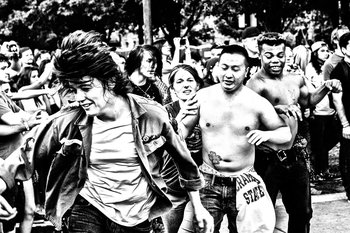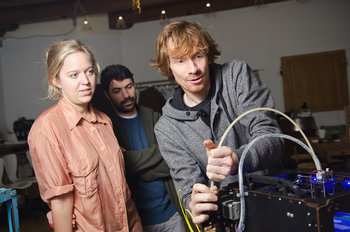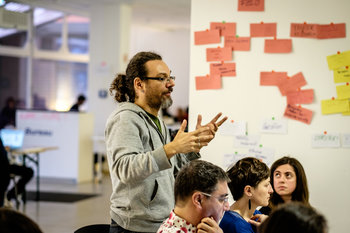
Brooks Law
Team members may simply feel that the problem is overstaffed such that their contributions aren't required. For example, brooks law states that the length of a project will increase as you add more contributors to the project. Where brooks law holds, contributors may actually make an exercise more efficient by holding back their contributions.Mediocrity
Mediocrity is a tendency to seek the safety of groups but to contribute as little as possible to those groups. Mediocre individuals strongly prefer group work to individual work but are also strongly risk adverse in a group setting due to an aversion to competition, creative tension and criticism.Groupthink
Groupthink is a tendency for group discussions to reflect social dynamics as opposed to logic. For example, it is common for groups to form strategies, action items and decisions that each individual member of the group view as fully irrational. This may cause people to disengage in an attempt to preserve their sanity.Diffusion of Responsibility
Group work with no clear responsibilities such that people simply don't feel they are obligated to make a contribution. For example, four engineers solving an engineering problem versus a multi-disciplinary team where everyone has a different responsibility.Dispensability of Effort
The feeling, often accurate, that a contribution won't make any difference to the end result. Many processes aren't like a tug of war where every contribution counts. For example, a junior salesperson who often says something that makes closing a sale less likely who lets a senior salesperson handle things.Alpha Effect
In any group, a leader tends to emerge who dominates the other members of the group socially. For example, a contributor with an authoritarian personality who admonishes the suggestions of others to establish social dominance. In this situation, anyone who isn't interested in challenging the alpha may quite rationally minimize their participation.Misappropriation of Recognition
A tendency for a single individual to take the credit for the work of the group or for recognition of contributions to be otherwise flawed such that members of the group have little incentive to contribute.Defeatism
Members of the group who fully want the group to fail such that they hold back participation or participate in a way that adds negative value thus discouraging others from contributing. For example, a manager who wants a project to fail such that they try to derail a conversation intended to address a project issue.Sucker Effect
The feeling that doing more than your fair share of work is unfair such that each member competes to do as little as possible. For example, a construction worker who tries to slow down when they see that some other worker slowed down.Bystander Effect
The observation that a person will often help when they are the only witness to a problem but nobody will help when there are many witnesses to a problem. This is related to unclear responsibilities whereby as the only witness it is clear that you are responsible but with many witnesses it is unclear who is responsible.Failure Fatigue
Individuals who view the outputs of a team to be mediocre, low value, negative value or absurd such that they tire of participation.Working Style
Individuals who object to the structure of the group effort such that they aren't enthusiastic. For example, an individual who feels they should have been chosen as anchor for their team in a tug-of-war such that they become demotivated.Adaptive Performance
Adaptive performance is the rational process of scaling up your involvement when you are most needed. For example, if there are four doctors in an operating room, the lead surgeon may do most of the work. It almost never makes sense for everyone to contribute equally to real world work. Simplistic examples where everyone's maximum effort is beneficial such as a tug of war are the exception and not the rule.| Overview: Social Loafing | ||
Type | ||
Definition | The tendency for people to contribute less effort to a group activity than an individual activity. | |
Related Concepts | ||







